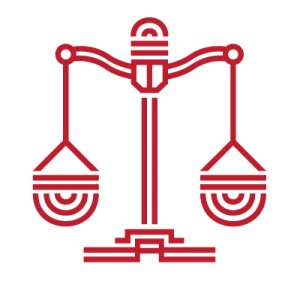Best Project Finance Lawyers in Midrand
Share your needs with us, get contacted by law firms.
Free. Takes 2 min.
List of the best lawyers in Midrand, South Africa
About Project Finance Law in Midrand, South Africa
Project finance refers to the structuring and funding of large-scale infrastructure or industrial projects, where repayments are made primarily from the cash flow generated by the project itself. In Midrand, South Africa, project finance is crucial for the development of energy plants, transport infrastructure, telecommunications, and public-private partnerships. Due to its location and booming commercial growth, Midrand is an attractive hub for such significant investment projects. Legal guidance ensures that these arrangements comply with local laws and international standards, while balancing the interests of developers, funders, government authorities, and other stakeholders.
Why You May Need a Lawyer
Project finance deals are complex and often involve multi-party contracts, high-value transactions, and strict regulatory compliance. You may require legal advice if you are:
- Seeking funding for a new infrastructure or energy project
- A lender or investor assessing risks in a project
- A contractor or sub-contractor drafting or negotiating agreements
- Part of a public-private partnership (PPP) arrangement
- Concerned about environmental and regulatory approvals
- Managing disputes or delays in existing projects
- Negotiating or structuring off-take or supply agreements
A lawyer specializing in project finance can guide you through due diligence, identify regulatory pitfalls, draft and review contracts, assist with financial close, and manage risks throughout the project lifecycle.
Local Laws Overview
Project finance in Midrand operates within the broader South African legal framework. Key aspects include:
- Regulatory bodies such as the National Energy Regulator of South Africa (NERSA), and municipal planning authorities oversee approval and compliance processes
- Broad-Based Black Economic Empowerment (B-BBEE) requirements impact ownership and procurement in many projects
- The Public Finance Management Act (PFMA) and Municipal Finance Management Act (MFMA) regulate public and municipal involvement
- Environmental impact assessments must comply with the National Environmental Management Act (NEMA)
- Land acquisition and use are subject to South African property laws and local municipal zoning regulations
- Security arrangements, such as cessions and pledges, are governed by South African commercial and contract law
- Exchange control regulations may apply to cross-border transactions or foreign investors
The local authorities in Midrand, under the City of Johannesburg Metropolitan Municipality, play a pivotal role in project approval, land use, and permits.
Frequently Asked Questions
What is project finance?
Project finance is a method of funding in which lenders and investors finance a project based on its expected future cash flows, rather than the assets or credit of the project sponsors.
What type of projects are usually financed this way in Midrand?
Common projects include renewable energy plants, toll roads, water supply facilities, telecommunications infrastructure, and housing developments, especially through public-private partnerships.
Who are the key parties involved in a project finance transaction?
The central parties are the project sponsors, lenders or financial institutions, contractors, government entities, and sometimes third-party investors or off-takers.
What legal documents are typically required for project finance?
Key documents include loan agreements, construction contracts, concession agreements, security documents, shareholding agreements, and off-take agreements.
How does B-BBEE affect project finance deals?
B-BBEE legislation promotes black economic empowerment in South Africa and may require that projects meet certain ownership, management, and procurement criteria to qualify for government support or favorable terms.
What exchange control rules should foreign investors be aware of?
The South African Reserve Bank regulates cross-border flows of finance, and foreign investors must comply with exchange control regulations concerning currency transactions, repatriation of profits, and offshore funding.
Are there specific environmental requirements for projects in Midrand?
Yes, all major projects require environmental authorizations as per the National Environmental Management Act, with environmental impact assessments and public consultation processes forming a crucial part of compliance.
What risks are unique to project finance in South Africa?
Political and regulatory risk, exchange rate volatility, compliance with B-BBEE, and protracted approval processes are significant risks that legal advice can help mitigate.
Can disputes in project finance be resolved outside of court?
Yes, many agreements include arbitration or mediation clauses to resolve disputes efficiently without resorting to lengthy litigation.
How early should I engage a project finance lawyer?
Ideally, you should consult a qualified project finance lawyer at the conceptual or planning stage of your project to identify legal risks and ensure all agreements are correctly structured from the outset.
Additional Resources
Several organizations and authorities can assist with project finance matters in Midrand, South Africa:
- National Treasury for public finance regulations and PPP guidance
- The National Energy Regulator of South Africa (NERSA) for energy projects
- The Department of Trade, Industry and Competition (DTIC) for investment incentives
- South African Reserve Bank (SARB) for exchange control requirements
- City of Johannesburg Metropolitan Municipality for planning and zoning approvals
- South African Law Society and Gauteng Legal Practice Council for finding qualified lawyers
Next Steps
If you are considering embarking on a project finance venture in Midrand, follow these recommended steps:
- Clearly identify the scope and scale of your project
- Consult with a qualified project finance lawyer early to navigate regulatory, contractual, and financial considerations
- Prepare all necessary documentation, including business plans, regulatory filings, and draft agreements
- Engage with relevant authorities and comply with all approval and licensing requirements
- Conduct thorough due diligence on all parties and assets involved
- Set up clear dispute resolution mechanisms in your contracts
- Revisit and update your compliance strategies as legislation evolves
Taking these steps with the guidance of experienced legal professionals will increase your chances of success and minimize risk when financing projects in Midrand, South Africa.
Lawzana helps you find the best lawyers and law firms in Midrand through a curated and pre-screened list of qualified legal professionals. Our platform offers rankings and detailed profiles of attorneys and law firms, allowing you to compare based on practice areas, including Project Finance, experience, and client feedback.
Each profile includes a description of the firm's areas of practice, client reviews, team members and partners, year of establishment, spoken languages, office locations, contact information, social media presence, and any published articles or resources. Most firms on our platform speak English and are experienced in both local and international legal matters.
Get a quote from top-rated law firms in Midrand, South Africa — quickly, securely, and without unnecessary hassle.
Disclaimer:
The information provided on this page is for general informational purposes only and does not constitute legal advice. While we strive to ensure the accuracy and relevance of the content, legal information may change over time, and interpretations of the law can vary. You should always consult with a qualified legal professional for advice specific to your situation.
We disclaim all liability for actions taken or not taken based on the content of this page. If you believe any information is incorrect or outdated, please contact us, and we will review and update it where appropriate.











